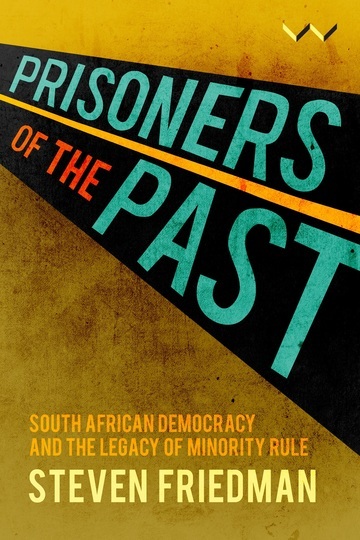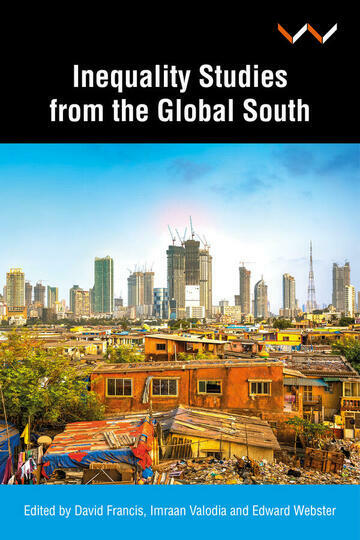One Virus, Two Countries
What Covid-19 Tells Us About South Africa
- Publication Date: Nov 2021
- Dimensions and Pages: 229 x 152mm Extent: 168pp
- Paperback EAN: 978-1-77614-743-4
- eBook EAN: 978-1-77614-746-5
- PDF EAN: 978-1-77614-745-8
- Rights: World
- Recommended Price (ZAR): 300.00
- Recommended Price (USD): 20.00
Friedman provides an important case study of the damage caused when we develop policies
by copying ‘best practice’ from Europe and the US, without testing them consistently against
South African realities.
— Neva Makgetla, senior economist, Trade and Industrial Policy Strategies (TIPS)
With an emphasis on the politics of knowledge this book breaks new ground for critical
reflection and public debate on the first wave of the Covid-19 pandemic. It is a must-read.
— Vishwas Satgar, principal investigator, Emancipatory Futures Studies in the Anthropocene,
and editor of the Democratic Marxism series, University of the Witwatersrand, Johannesburg
Steven Friedman demonstrates his characteristic ability to weave together insights from
history, social science and politics in a way that is not only accessible and lucid, but also
provocative and persuasive. This compelling examination of public debate, media framing,
politics and economic power shows why Friedman is considered one of South Africa’s
foremost political analysts.
— Herman Wasserman, Professor of Media Studies, University of Cape Town
Has South Africa ‘done well’ at limiting illness and deaths during the Covid-19 pandemic? Academic and political commentator, Steven Friedman, thinks not. While the country’s mainstream media believes it has, in his view the evidence tells another story. South Africa has experienced by far the most cases and deaths in Africa – at one point as many as the rest of the continent combined.
One Virus, Two Countries: What Covid-19 tells us about South Africa offers a searing analysis of government and expert scientists’ responses to the pandemic. Friedman argues that South Africa is two societies in one – a ‘First World’ which resembles Western Europe and North America, and a ‘Third World’ which looks much like the rest of Africa or South Asia. The South African state, the media and the scientific community have largely tried to deal with the virus through a ‘First World’ lens in which much of the country was either invisible or a problem – not a partner. Friedman argues this approach prevented the country from responding in a way which would have protected most citizens. This is why case numbers and deaths are so high: South Africa has done worse than the rest of Africa not despite the fact that it has a ‘more developed’ health system, but because it does.
One Virus, Two Countries is a controversial book that will rouse much needed debate about South Africa’s health and economic system in a context of serious inequality.
Introduction
Chapter 1 One Country, Two Realities
Chapter 2 Following the Science
Chapter 3 The Science Unravels
Chapter 4 The Blank Cheque
Chapter 5 The Path Not Taken
References
Index
Steven Friedman is a political scientist and public commentator; newspaper columnist and former trade unionist. He is Research Professor attached to the Department of Politics in the Humanities Faculty, University of Johannesburg. He is author of Power in Action: Democracy, citizenship and social justice and Prisoners of the Past: South African democracy and the legacy of minority rule.
Friedman provides an important case study of the damage caused when we develop policies
by copying ‘best practice’ from Europe and the US, without testing them consistently against
South African realities.
— Neva Makgetla, senior economist, Trade and Industrial Policy Strategies (TIPS)
With an emphasis on the politics of knowledge this book breaks new ground for critical
reflection and public debate on the first wave of the Covid-19 pandemic. It is a must-read.
— Vishwas Satgar, principal investigator, Emancipatory Futures Studies in the Anthropocene,
and editor of the Democratic Marxism series, University of the Witwatersrand, Johannesburg
Steven Friedman demonstrates his characteristic ability to weave together insights from
history, social science and politics in a way that is not only accessible and lucid, but also
provocative and persuasive. This compelling examination of public debate, media framing,
politics and economic power shows why Friedman is considered one of South Africa’s
foremost political analysts.
— Herman Wasserman, Professor of Media Studies, University of Cape Town






